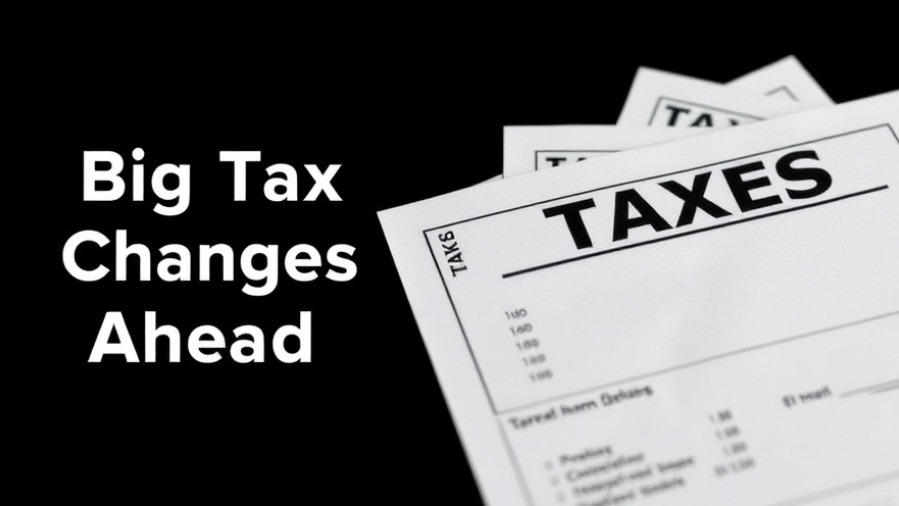
Understanding the OBBBA’s Importance for Small Business Owners
The One Big Beautiful Bill Act (OBBBA) is more than just a playful acronym; it represents significant reforms that affect individual taxpayers across the country. For small business owners and entrepreneurs, the implications of these tax changes, which build upon the Tax Cuts and Jobs Act (TCJA) of 2017, cannot be overlooked. The permanence of tax provisions such as lower income tax rates and an increased standard deduction will shape financial landscapes for years to come.
Key Changes Impacting Taxpayers
Enacted in early July 2025 and representing the most substantial set of federal tax changes since the TCJA, the OBBBA modifies individual income tax structures significantly. Notably, it makes essential features like lower ordinary income tax rates permanent, helping to curb the anticipated tax increases that many families would face without the bill's passage. Much of the TCJA's individual reforms were scheduled to expire at the end of 2025, risking a tax hike for approximately 62% of taxpayers. Now, the standard deduction, child tax credits, and other features are now not only preserved but enhanced, improving the financial standing of many households.
How the Standard Deduction is Enhanced
For business owners, understanding the mechanics of the standard deduction is vital as it allows many to reduce taxable income significantly. Under the OBBBA, the standard deduction has increased to $15,750 for single filers and $31,500 for married couples filing jointly for tax year 2025, with adjustments for inflation in subsequent years. This simplification means that more individuals and families can benefit without having to navigate the often convoluted complexities of itemized deductions.
New Tax Credits for Families
Another transformative element of the OBBBA is the increase in the Child Tax Credit (CTC). In 2026, the maximum CTC amount per qualifying child rises from $2,000 to $2,200. This change not only provides immediate financial relief but also offers a framework that adjusts over time for inflation, emphasizing the bill's focus on sustaining long-term benefits for families.
Policy Implications for Future Planning
For owners of small businesses, these tax changes present both challenges and opportunities that can influence future planning. The increase in the CTC alongside the new deductions for overtime pay and tips could dramatically alter budgeting strategies, allowing for the reinvestment of savings into business operations or employee benefits. The OBBBA not only aims to alleviate immediate financial pressures but also sets trends that may bring about future adjustments to tax planning strategies, especially in terms of retaining quality employees.
Evaluating the DUCA and QBI Deductions
The OBBBA does not just preserve existing benefits; it introduces new provisions as well. Deductible interest on car loans for vehicles manufactured in the U.S. adds another layer of potential savings for business owners who utilize their vehicles for work. Additionally, components like the Qualified Business Income (QBI) deduction remain unchanged, allowing small businesses to retain some of the tax benefits provided in the TCJA while also navigating a more complicated code.
Looking Ahead: The Broader Economic Picture
The passage of the OBBBA signifies a notable shift in economic policy that connects our federal tax strategies with broader financial realities—especially for small business owners, who want clarity amidst tax complexity. As experts predict, these changes lay the groundwork for more significant financial events in coming years, and the permanent features of the OBBBA may lessen the uncertainty that often accompanies tax-related planning.
In Conclusion: Staying Informed is Key
Understanding the OBBBA and its various provisions will empower business owners and entrepreneurs to leverage the tax code for maximum benefit. As always, engaging with tax professionals for insights and tailored strategies can provide clarity amidst these changes. Stay informed, as knowledge not only increases confidence in financial decisions but also enhances overall financial health.
 Add Row
Add Row  Add
Add 




Write A Comment